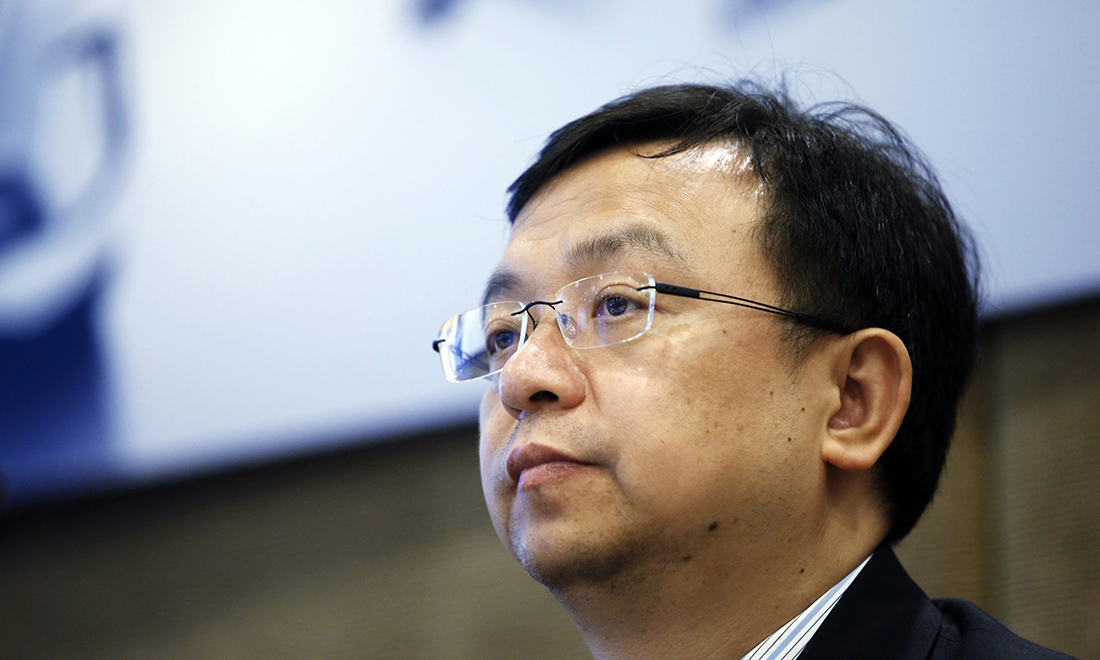
上周,大批中國汽車廠商亮相歐洲知名車展,德國媒體高呼德國汽車行業幾乎到了生死存亡的時刻。
通常情況下,兩年一度的德國國際車展(IAA)將為德國汽車廠商和供應商提供機會,展示他們最令人驚艷的創新,吸引游客和記者。
但在今年的車展上,所有人都在談論一件事情——來自遙遠東方的新電動汽車可能掀起滔天巨浪,在德國汽車廠商自己的本土市場對他們構成威脅。
德國一家著名商業周刊警告稱“德國車展變成了中國秀”,而《明鏡》周刊(Der Spiegel)預測“德國汽車行業將迎來艱難時期”。
埃隆·馬斯克的特斯拉(Tesla)大獲成功,已經讓德國汽車廠商自愧不如,特斯拉輕輕松松地讓梅賽德斯-奔馳(Mercedes-Benz)和寶馬(BMW)等公司降級為業內的旁觀者。他們最不想看到的就是一些新貴品牌,例如王傳福的比亞迪,為了避開馬斯克在中國的價格戰而轉戰歐洲,從而加劇歐洲汽車廠商的困境。
比亞迪歐洲區的經理布萊恩·楊在接受德國《商報》(Handelsblatt)采訪時表示:“我們希望做到質優價廉。”《商報》是德國企業界精英密切關注的一份日報。
中國的出口能力
據《南德意志報》(Süddeutsche Zeitung)報道,中國每年可以生產約4,000萬輛汽車。這比中國的實際汽車需求量多出約1,500萬輛,這遠遠超過了歐洲汽車市場的規模。此外,中國通過寧德時代和國軒高科等供應商,還控制了全球90%的電動汽車電池供應。
如果中國利用這種優勢生產比亞迪海豹(Seal)這種質優價廉的汽車,那么其他同行除了品牌傳承以外,就將毫無任何競爭優勢。但阿爾法·羅密歐(Alfa Romeo)等受人尊敬的汽車廠商積攢的商譽,不可能永遠存在下去。
歐洲行業游說組織歐洲汽車制造商協會(ACEA)的總干事西格麗德·德弗里斯說:“中國已經瞄準了歐洲市場,這有可能從根本上顛覆歐洲的行業格局。”
假裝毫不畏懼
多年來,德國汽車廠商在中國市場如魚得水,飛速增長,但過去十年,他們慢慢發現自己處于劣勢。
2018年,中國汽車業巨頭、吉利汽車的創始人李書福,成為梅賽德斯-奔馳的最大股東。
最初,梅賽德斯等品牌為了維持在全世界的主導地位,與中國本土企業簽署了大量協議,希望與其中一些企業合作,以提升德國小汽車落后的競爭力。
梅賽德斯將其在Smart汽車的一半股份賣給了李書福的吉利汽車。Smart是一個微型車品牌,憑借在街道上能夠直角停車而聞名。寶馬則向長城汽車尋求幫助,委托后者幫助其生產電動版MINI,從明年開始將從中國進口這款汽車。這些交易曾經一度被認為是雙贏。
現在,大眾汽車(Volkswagen)不得不與中國新汽車品牌小鵬達成一筆7億美元的合作協議,希望解決其在聯網汽車領域專業知識不足的問題。1984年,大眾汽車很有先見之明地進入中國市場,之后便一直是中國汽車市場的絕對王者。
德國商業日報《商報》在9月1日發表的一篇詳細報告中問道:“視而不見?合作?還是模仿?”“德國汽車廠商正在心急如焚地尋找應對新競爭對手的方法。”
延遲的海嘯
多年來,分析師一直預測價格低廉的中國汽車將如海嘯般席卷西方市場,類似于早期的日本和后來的韓國汽車進入西方市場的情形。
但有太多的中國品牌在性能、甚至更糟糕的安全性等重要領域偷工減料,比如江鈴陸風曾經在2005年被評價為“死亡陷阱”。
當行業觀察家們忙著調整預測時,中國卻將重心從借鑒西方的競爭對手,變成了領先的一方。
首先,中國汽車廠商迅速抓住從內燃機發動機向電動動力系統轉變顛覆整個行業的機會。中國曾經試圖在內燃機汽車領域追上競爭對手,但未能成功。現在,只有特斯拉有希望與中國電動汽車廠商一較高下,甚至只有其最暢銷的Model Y才有競爭的實力。
但同樣重要的是,中國品牌熱衷于改善軟件體驗,對于習慣了智能手機應用程序微信滿足大多數日常需求的中國人而言,更好的軟件體驗是必不可少的。埃隆·馬斯克也曾經公開表示希望可以復制微信的主導地位。
寶馬集團(BMW Group)的首席執行官齊普策(Oliver Zipse)在接受《商報》采訪時表示,中國生產的汽車可能不符合歐洲人的品味,或者中國汽車廠商的售后網絡不完善,可能無法提供汽車維護。
他說:“雄心與成功是兩碼事。”
但這一次,中國汽車廠商不止帶著雄心來到德國。(財富中文網)
譯者:劉進龍
審校:汪皓
上周,大批中國汽車廠商亮相歐洲知名車展,德國媒體高呼德國汽車行業幾乎到了生死存亡的時刻。
通常情況下,兩年一度的德國國際車展(IAA)將為德國汽車廠商和供應商提供機會,展示他們最令人驚艷的創新,吸引游客和記者。
但在今年的車展上,所有人都在談論一件事情——來自遙遠東方的新電動汽車可能掀起滔天巨浪,在德國汽車廠商自己的本土市場對他們構成威脅。
德國一家著名商業周刊警告稱“德國車展變成了中國秀”,而《明鏡》周刊(Der Spiegel)預測“德國汽車行業將迎來艱難時期”。
埃隆·馬斯克的特斯拉(Tesla)大獲成功,已經讓德國汽車廠商自愧不如,特斯拉輕輕松松地讓梅賽德斯-奔馳(Mercedes-Benz)和寶馬(BMW)等公司降級為業內的旁觀者。他們最不想看到的就是一些新貴品牌,例如王傳福的比亞迪,為了避開馬斯克在中國的價格戰而轉戰歐洲,從而加劇歐洲汽車廠商的困境。
比亞迪歐洲區的經理布萊恩·楊在接受德國《商報》(Handelsblatt)采訪時表示:“我們希望做到質優價廉。”《商報》是德國企業界精英密切關注的一份日報。
中國的出口能力
據《南德意志報》(Süddeutsche Zeitung)報道,中國每年可以生產約4,000萬輛汽車。這比中國的實際汽車需求量多出約1,500萬輛,這遠遠超過了歐洲汽車市場的規模。此外,中國通過寧德時代和國軒高科等供應商,還控制了全球90%的電動汽車電池供應。
如果中國利用這種優勢生產比亞迪海豹(Seal)這種質優價廉的汽車,那么其他同行除了品牌傳承以外,就將毫無任何競爭優勢。但阿爾法·羅密歐(Alfa Romeo)等受人尊敬的汽車廠商積攢的商譽,不可能永遠存在下去。
歐洲行業游說組織歐洲汽車制造商協會(ACEA)的總干事西格麗德·德弗里斯說:“中國已經瞄準了歐洲市場,這有可能從根本上顛覆歐洲的行業格局。”
假裝毫不畏懼
多年來,德國汽車廠商在中國市場如魚得水,飛速增長,但過去十年,他們慢慢發現自己處于劣勢。
2018年,中國汽車業巨頭、吉利汽車的創始人李書福,成為梅賽德斯-奔馳的最大股東。
最初,梅賽德斯等品牌為了維持在全世界的主導地位,與中國本土企業簽署了大量協議,希望與其中一些企業合作,以提升德國小汽車落后的競爭力。
梅賽德斯將其在Smart汽車的一半股份賣給了李書福的吉利汽車。Smart是一個微型車品牌,憑借在街道上能夠直角停車而聞名。寶馬則向長城汽車尋求幫助,委托后者幫助其生產電動版MINI,從明年開始將從中國進口這款汽車。這些交易曾經一度被認為是雙贏。
現在,大眾汽車(Volkswagen)不得不與中國新汽車品牌小鵬達成一筆7億美元的合作協議,希望解決其在聯網汽車領域專業知識不足的問題。1984年,大眾汽車很有先見之明地進入中國市場,之后便一直是中國汽車市場的絕對王者。
德國商業日報《商報》在9月1日發表的一篇詳細報告中問道:“視而不見?合作?還是模仿?”“德國汽車廠商正在心急如焚地尋找應對新競爭對手的方法。”
延遲的海嘯
多年來,分析師一直預測價格低廉的中國汽車將如海嘯般席卷西方市場,類似于早期的日本和后來的韓國汽車進入西方市場的情形。
但有太多的中國品牌在性能、甚至更糟糕的安全性等重要領域偷工減料,比如江鈴陸風曾經在2005年被評價為“死亡陷阱”。
當行業觀察家們忙著調整預測時,中國卻將重心從借鑒西方的競爭對手,變成了領先的一方。
首先,中國汽車廠商迅速抓住從內燃機發動機向電動動力系統轉變顛覆整個行業的機會。中國曾經試圖在內燃機汽車領域追上競爭對手,但未能成功。現在,只有特斯拉有希望與中國電動汽車廠商一較高下,甚至只有其最暢銷的Model Y才有競爭的實力。
但同樣重要的是,中國品牌熱衷于改善軟件體驗,對于習慣了智能手機應用程序微信滿足大多數日常需求的中國人而言,更好的軟件體驗是必不可少的。埃隆·馬斯克也曾經公開表示希望可以復制微信的主導地位。
寶馬集團(BMW Group)的首席執行官齊普策(Oliver Zipse)在接受《商報》采訪時表示,中國生產的汽車可能不符合歐洲人的品味,或者中國汽車廠商的售后網絡不完善,可能無法提供汽車維護。
他說:“雄心與成功是兩碼事。”
但這一次,中國汽車廠商不止帶著雄心來到德國。(財富中文網)
譯者:劉進龍
審校:汪皓
Chinese carmakers were descending on Europe’s premier car show last week in such large numbers, the German media is reaching a state of near existential angst.
Normally the IAA provides a biennial opportunity for the country’s vaunted automakers and suppliers to show off their most impressive new innovations, wowing visitors and journalists alike.
This time, however, everyone is only talking about one thing—the potential tidal wave of new electric vehicles from the Far East that threatens them in their own home market.
“The IAA becomes the China show,” one of the country’s leading business weeklies warned, while Der Spiegel predicted “trying times ahead for the German automotive industry.”
The country has already been humbled by the success of Elon Musk’s Tesla, which so effortlessly relegated companies like Mercedes-Benz and BMW to bystanders in their own industry. The last thing they need is for new upstart brands like Wang Chuanfu’s BYD to seek refuge from Musk’s price war in China by piling on the misery in Europe.
“We want to be premium and affordable,” said BYD Europe manager Brian Yang in an interview with Handelsblatt, a German daily paper closely monitored by the country’s corporate elite.
China export capacity
Roughly 40 million vehicles can be built annually in China, according to the Süddeutsche Zeitung. That’s about 15 million more than they actually need, a number far larger than the size of Europe’s own car market. Moreover the country also controls 90% of the world’s supply of EV battery cells through suppliers like CATL and Gotion.
If China can use this advantage to build cars like the BYD Seal that are seen as both premium and affordable, then there is no competitive edge left for the rest of the industry save to rely on brand heritage. But venerable carmakers like Alfa Romeo prove goodwill won’t last forever.
“China has its gaze set on the European market, with the potential to fundamentally change the face of Europe’s industries as we know it,” said Sigrid de Vries, director general of Europe’s industry lobby group ACEA.
Putting on a brave face
For years German automakers grew fat on the growth in China’s car market, but they have slowly found themselves on the back foot over the past decade.
Chinese auto tycoon Li Shufu, who founded Geely, became the largest shareholder in Mercedes-Benz back in 2018.
Initially, brands like Mercedes struck a number of deals with local Chinese companies to maintain their dominance around the world, hoping to get into bed with some of them with the aim of bolstering the lagging competitiveness of their small car range.
Mercedes sold to Li’s Geely half its stake in Smart, the minicar brand once famous for its ability to park perpendicular to the street. Meanwhile BMW turned to Great Wall Motor for help with its electric MINI, to be imported from China starting next year. At the time these deals were considered a win-win.
Now Volkswagen—once the undisputed king ever since its prescient bet to enter China back in 1984—has been forced to strike a $700 million deal with Chinese newcomer Xpeng in hopes of shoring up its lack of expertise in connected cars.
“Ignore? Cooperate? Imitate?” asked German business daily Handelsblatt in an extensive report published on September 1. “German manufacturers are feverishly looking for a way to deal with the new competition.”
Delayed tsunami
For years analysts have been predicting a tsunami of cheap Chinese cars washing up on Western shores, much the way first Japanese and later South Korean imports arrived.
But too many Chinese brands cut corners in important areas like performance or, worse, safety, with the Jiangling Landwind in 2005 earning a reputation as a death trap.
Yet while industry watchers were busy recalibrating their forecasts, China shifted its focus from trying to copy Western rivals to turning the tables on them.
First, they were quick to seize on the disruption offered by the shift to electric drivetrains from internal combustion engines, where they were playing a losing game of catch-up. Only Tesla can hope to compete on cost with Chinese EV makers right now, and even then arguably only when it comes to its bestselling Model Y.
But just as important has been the devotion by Chinese brands to improving the software experience—a necessity for a population that is used to accomplishing most of their daily needs through smartphone app WeChat, so dominant even Elon Musk openly wants to copy it.
In an interview with Handelsblatt, BMW Group CEO Oliver Zipse put on a brave face, arguing the Chinese may not build cars that match European tastes, or they could end up with an after-sales network ill-equipped to service their cars.
“Ambition is not the same as success,” he said.
But this time, China’s carmakers are offering far more than ambition.






